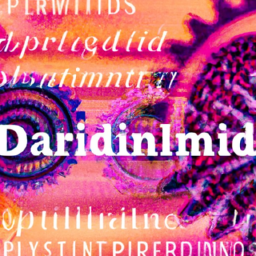The Impact of Social Media Algorithms on Digital Marketing
Over the last decade, social media platforms have become an integral part of our lives. Whether it’s Facebook, Instagram, Twitter, or LinkedIn, we spend a significant amount of time scrolling through our feeds, liking and sharing posts, and engaging with content from our favorite brands and influencers.
But have you ever wondered why you see certain posts on your feed and not others? Or why some posts get more likes and comments than others? The answer lies in the algorithms that social media platforms use to curate and display content to their users.
What are social media algorithms?
Social media algorithms are complex mathematical formulas used by platforms to determine the order and content of the posts that appear on a user’s feed. These algorithms take into account various factors like relevance, popularity, user preferences, and engagement metrics to decide which posts to show to each individual user.
Essentially, social media algorithms are designed to personalize and optimize the user experience by showing them content that they are most likely to find interesting and engaging.
How do social media algorithms impact digital marketing?
The rise of social media algorithms has had a profound impact on digital marketing strategies. Here are a few ways algorithms have changed the game:
1. Organic reach and visibility
Social media algorithms prioritize content that is relevant and engaging, which means that not all posts from brands and businesses will be shown to all their followers. This has led to a decline in organic reach, making it harder for businesses to get their message across to their audience without paid advertising or strategic content optimization.
2. Content strategy and quality
With algorithms favoring high-quality, engaging content, businesses are now forced to up their game and produce more compelling content that resonates with their target audience. This shift has led to an increased focus on storytelling, visual aesthetics, and interactive content formats like videos and live streams.
3. Influencer marketing
Social media algorithms have led to the rise of influencer marketing as a powerful digital marketing strategy. Since influencers have already built a loyal following, their content is more likely to make it to the top of users’ feeds. Collaborating with influencers can help businesses reach and engage with a wider audience, increase brand awareness, and drive conversions.
What can businesses do to navigate social media algorithms?
While social media algorithms may pose challenges for businesses, there are ways to navigate them effectively:
1. Understand the platform’s algorithm
Each social media platform has its own unique algorithm, and it’s important for businesses to familiarize themselves with how these algorithms work. By understanding the factors that influence content visibility, businesses can tailor their strategy accordingly.
2. Create engaging and valuable content
Invest in creating high-quality, valuable content that encourages user engagement. This can include asking questions, running polls, sharing visually appealing images or videos, and providing relevant information that resonates with your target audience.
3. Utilize paid advertising
Paid advertising can help businesses overcome the limitations of organic reach and ensure their content reaches a wider audience. Social media platforms offer various advertising options that allow businesses to target specific demographics, interests, and behaviors, making their ads more effective.
4. Monitor and adapt
Keep a close eye on the performance of your content and adjust your strategy accordingly. Analyze engagement metrics, monitor trends in your industry, and stay up-to-date with changes in algorithms to optimize your marketing efforts.
Conclusion
Social media algorithms have completely transformed the digital marketing landscape. While they pose challenges, they also present opportunities for businesses to connect with their target audience in more meaningful ways. By understanding how algorithms work and implementing strategies to optimize engagement, businesses can leverage the power of social media algorithms to drive their marketing efforts forward.











